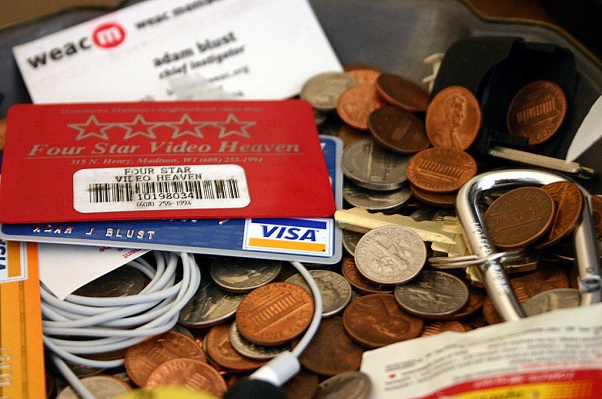Sometimes, ‘Africa is indeed a country’.
Take for example, Esusu. You have it in Nigeria, however you can find variations of it in several places. It’s known as Nago in Ivory Coast, Yesyes in Togo and Susu in Ghana. For the uninitiated, Esusu is a form of micro-finance savings, where you pool periodic (e.g. weekly) cash contributions with other people, in which you all take ‘turn’ to receive the pot. Think of it as an interest-free savings account.
However this post is not about the history of Esusu, but it’s instead on how to use technology to bring it to the 21st century and make it more accessible, to more people. Who knows, it might just be another stepping stone to solving some of that chronic unbanked issue that we have. I also earlier offered on Radar to provide feedback to anyone solving this problem, but realise that there might be others (I hope), tackling it.
Am I some sort of Esusu expert? Far from it. However, I’m currently a member of an Esusu group (wait for some relevant backstory on how I joined it), so none of what you will read here is data driven. Instead, it’s a collection of my observations on how my current experience could be made better.
But before we tackle how to make Esusu ‘great again’ (forgive my trumpism), if you’re interested in this problem, the question to you is simply; ‘what do you really want to achieve?’. The options you have is either create a ‘dumb dashboard*’ or solve a ‘hard problem’. If you want to build yet another dashboard, this is probably not going to be helpful. However, if you want to solve a hard problem, this will definitely be useful to you.
So, back in April, it was my good friend Tayo’s birthday. Since I’m Tayo’s boy (we attended Unilag together and we used to be flatmates too), he invited me to a small do at the new 805 restaurant. However, Tayo happens to be a popular guy, who knows quite a lot of people and a few of them turned up for this ‘small’ party. At the end of what turned out to be a long night of good food (top tip:ask for ‘Monica’. If you fancy grilled spicy and delicious fish), maybe one too many drinks (in case you were wondering, I’m a Guinness Man), we decided to form an Esusu group.
The key point worth highlighting about this story is that apart from Tayo, I only knew one other person (coincidentally also called Tayo) personally. The rest were all strangers who became friends and Esusu mates that night. Which is typical of Esusu groups – linked by a social connection, but working towards a common goal (money pot). This brings all sort of interesting challenges which can’t be glossed over. Below are the ways it can be made better:
Default
How do you handle the inevitable non-payments issue? This is the crucial event that unravels most Esusu groups – one person unceremoniously fails to pay up, and chaos descends on the group, like rain falling on the ground! Your approach to default will likely be a key component of your eventual business model. I think there are different approaches broadly along the lines of:
- Default is a problem that affects you, hence you want to be fully involved
- Default is the group’s problem and should be solely treated as such
- Although default is primarily a group’s problem, you’re willing to mediate to resolve or alleviate it’s effects
Luckily, we’ve not had this issue in my group (guys please let’s keep it that way!), but this is the ‘hard’ aspect about Esusu. And I understand that for any startup, it’s tempting to walk away from it and focus on other non pressing issues. It’s your call but I wouldn’t advise that route.
How to approach it?
Perhaps offer insurance (of course for a fee). The approach could be similar to AirBnB offering compensation to house owners, in the event of a guest causing damages. If you decide to go for option 1 above, then you might want to play an active role in verifying credit worthiness of members – before they join groups. The challenge is not to end up with a bloated and cumbersome process (which totally defeats the ease of joining Esusu groups).
The social connection
Arguably, what has made Esusu so successful is the social connection aspect. You usually pool money with people that you know. Nobody wants to let the group down, so they pay up. However as in my group, it’s not necessary people that you know personally. In such cases, it’s important that they have a way to forge a connection.
Why is this important? It’s important because that connection should help to create a bond that keeps the group intact for the long term.
How to approach it?
No need to reinvent the wheel, so best to start with integrating existing social platforms e.g Whatsapp (we use this as well).
However, this could be improved by providing specific functions that deepens the connection yet ties to the goal of every group – the money pot e.g. In my group, there’s a gap in understanding the purpose/use of the pot when a person receives it. You might say why does this matter? Knowing someone was going to use her Esusu turn as part of a deposit for a flat, might make a difference to how you contribute. (I’m buying a few pieces of hardware for PrognoStore’s customers).
For instance, most fitness apps e.g. FitBit integrates a social aspect to achieving goals. This of course makes the individual progress a collaborative effort.
Monthly contributions
This is messy right now in my group and I can only imagine it will be same for most groups. Currently, the ‘organiser’ sends a message on whatsapp reminding us to pay into the account of the ‘collector’ for that month. What this means is that I’ve ended up adding new accounts to be paid each month. You might wonder (like I did), why we’re not simply paying directly into the organiser’s account and allow him to handle the disbursement. I think it’s more of a transparency issue and also to shift the burden of admin away from him.
How to approach it?
Authorise monthly payment from my account into a designated account. I would recommend talking to the good folks at Paystack to see what they can do. Good alternatives also include AmplifyPay and SimplePay. Once payment has been deducted from individual accounts, then it should be paid to the person collecting ‘turn’. Seamless payments should be the goal.
Regulatory Compliance, Safety and Security
Okay, so you will be having some sort of access to people’s money, right? Maybe as an intermediary authorised to make withdrawals. Either way you look at it, you will definitely be handling sensitive data so you also need ensure this is kept safe and secured. You also need to be aware of any regulatory requirements from NIBSS, CBN etc that you may be required to satisfy.
How to approach it?
Read what I wrote earlier on Fintech Security in Nigeria: Only the Paranoid survives. You will also likely depend on 3rd parties for this compliance who should have the required controls.
Group Size
Now I sense group size will have a lot to do with default rate and the general health of a group. Remember, I’ve got no data to prove anything (that’s your work), but I strongly suspect that limiting a group size will have an effect on everything. What do I mean? If a group is too large (let’s pick a random number – say 11 people), then default rate might be higher (takes too long to get to people’s turn), social connection will be weak (too many people to actually have a relationship), etc.
How to approach it?
To start, pick a random number for max group size. From there work with some assumptions, hopefully have enough traction to get some real data, to back up or disprove my theory.
Revenue
Esusu usually works with no fees paid and no interest earned on the pooled pot. However, in quasi-formal setting such as markets associations, professional associations etc, it’s usual to pay a fee for joining and administration. That’s a possible revenue stream.
But the real pot of gold as far as revenue is concerned, is your data. Having access to people who actually can demonstrate credit worthiness is ‘huge’ (sorry, couldn’t resist another trumpism).
Finally, I’m aware that there have been some attempts. For example, Diamond Bank’s Esusu or e-susu which was pitched at TC hackathon have made decent endeavours. But in my opinion, there’s a gap and the hard problems left untouched. It needs an uber like type of radical change. None of the current players have done that.
That’s it folks. Happy building..By the way, did I mention it was my ‘turn’ this month to collect? I don hammer!
*Dumb Dashboard: Mainly focuses on the tabulation and display aspect of the contributions.
P.S if you found this useful and want to build it, feel free to reach out to me – I will help.
[separator type=”thick”]
Editor’s note: This article was first published on Ade Olabode’s Medium page. Ade is the founder/CEO of Prognostore, a 3-in-1 point-of-sale and inventory solution that helps small business owners run their businesses smarter.



















